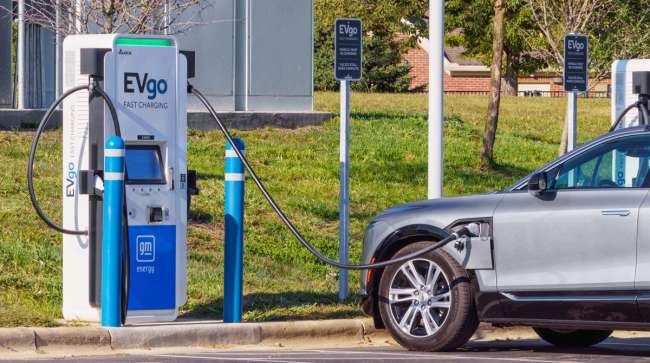cleveland.com
Ohio’s EV Charger Expansion Stalls After Federal Freeze

[Stay on top of transportation news: Get TTNews in your inbox.]
COLUMBUS, Ohio — Gov. Mike DeWine’s administration has embraced federal funding to install new electric-vehicle charging stations along highways around Ohio, erecting nearly a third of the 58 stations set up nationwide so far with the money.
But it’s now unclear whether Ohio will build any more of the federally funded charging stations, as President Donald Trump’s administration has directed all states to halt any new spending of the money, offered in the 2021 Bipartisan Infrastructure Law to build a nationwide EV charging network.
The freeze was ordered for officials to review spending to ensure it aligns with Trump administration priorities. Trump himself has slammed the federal spending on electric vehicle chargers, calling it a “crazy electric Band-Aid” during last year’s Republican National Convention.
DriveOhio, the Ohio Department of Transportation’s initiative that’s overseen the state’s EV charging station construction, so far has set up 19 of the 42 charging stations that the DeWine administration has planned to erect with $140 million from the 2021 infrastructure law, according to DriveOhio spokeswoman Breanna Badanes.
The stations are planned to be set up near Interstates and other major highways to ensure there’s at least one charging station along every 50 miles of road.
RELATED: GM and Ford Lobby to Save EV Tax Incentives
DriveOhio is now working with the Federal Highway Administration and its own finance department to clarify how the freeze will affect building charging stations moving forward, Badanes said.
Want more news? Listen to today's daily briefing above or go here for more info
“I think the question is whether the funding is in place to cover the existing obligations that we have for those stations,” she said. “So, we’re just trying to make sure ...that we’re confident that the funding is secure before we continue moving forward.”
Some other states, such as Maryland and Tennessee, have said they will continue work using the federal charging-station money despite the freeze.
Andrew Rogers, a former FHWA deputy administrator who helped craft and pass the Bipartisan Infrastructure Law, said Ohio has had a leg up over other states in using the charging station money because DeWine and his administration were quick out of the gate, drawing up plans to build stations even before the funding rules were finalized.
In December 2023, the nation’s first charging station paid for with the 2021 infrastructure law opened along Interstate 70 in Madison County, west of Columbus.
Host Seth Clevenger and TT's Connor Wolf discuss CES 2025 and the emerging technologies that could push the trucking industry forward. Tune in above or by going to RoadSigns.ttnews.com.
“Ohio has, from the jump, really been the ‘A’ student in this whole process,” said Rogers, who’s now senior vice president of Boundary Stone Partners, a Washington, D.C.-based lobbying firm.
Rogers said he suspects the funding freeze will be “more of a blip in the radar,” pointing to Transportation Secretary Sean Duffy’s comments on Fox Business Network last weekend that it’s up to Congress to decide whether to permanently shut off federal funding for electric vehicle charging stations or to claw back money that’s already been spent.
But even a temporary freeze can, and has, had a negative effect, Rogers said.
RELATED: Honda to Begin US EV Production With Ohio-Built 0 Series
“When you’re talking about construction workers on sites, when you’re talking about permits being pulled, when you’re talking about active contracts with the private sector — that can raise costs,” he said. “You can lose construction seasons depending on the weather, and that can result in lost jobs.”
Distributed by Tribune Content Agency, LLC





